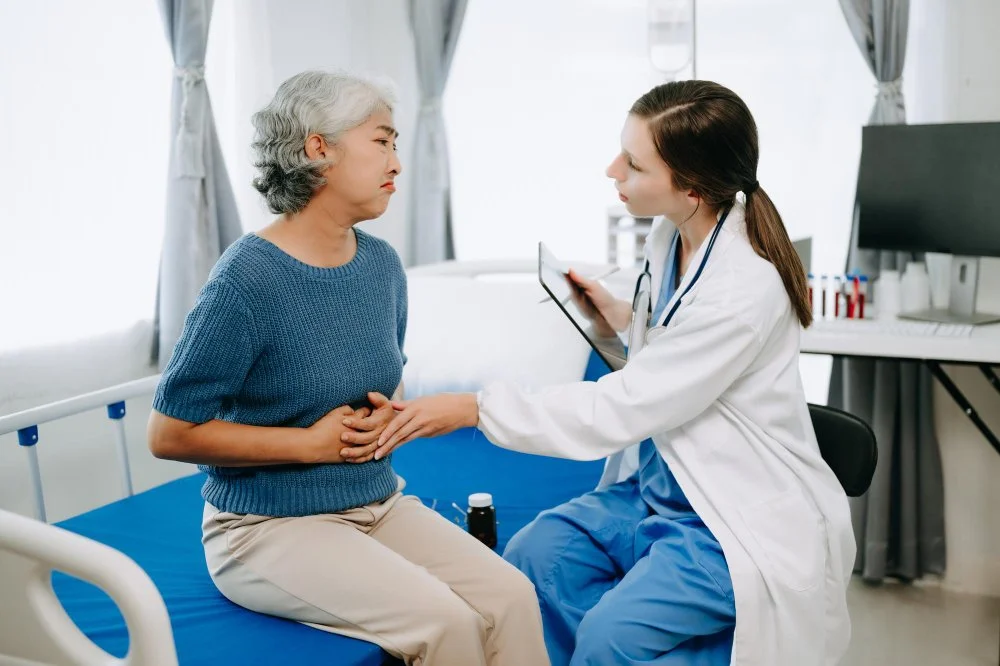What Are Most Common GI Disorders and their Treatment?
Gastrointestinal disorders encompass a range of conditions affecting the digestive tract, from the esophagus down to the colon. Recognizing the signs and seeking timely treatment from GI doctors is crucial for managing these ailments effectively. With a variety of symptoms that can overlap across different disorders, accurate diagnosis and appropriate care are paramount.
We will cover the specifics of several common gastrointestinal issues, offering insights into their symptoms, diagnosis, and treatment options. Through understanding these conditions, individuals can better navigate their symptoms and collaborate with GI doctors for optimal health outcomes.
Gastroesophageal Reflux Disease (GERD)
It happens when stomach acid flows back into your food pipe, called the esophagus. People with asthma face a higher chance of getting GERD. It usually happens after eating or during the night.
Common Signs of GERD
A burning sensation or heartburn, often after eating.
A sour or bitter taste in the mouth due to acid reflux.
Difficulty swallowing and sensation of food being stuck in your throat.
Upper-right abdominal pain
Chest pain
Treatment Methods for GERD Recommended by GI Doctors
Avoiding foods that trigger symptoms, eating smaller meals, and not lying down immediately after eating.
Antacids, H2 receptor blockers and proton pump inhibitors reduce stomach acid.
In severe cases, procedures like fundoplication may be recommended by GI doctors in OKC and other areas to prevent reflux.
Gallstones
Gallstones are solid pieces made from digestive fluid, formed in the gallbladder, a small, pear-shaped organ on the right side of your abdomen. They develop when your bile has excess cholesterol or waste, and when the gallbladder doesn't empty as it should.
Tell-Tale Signs
Severe pain in the upper right abdomen or middle of the stomach.
Nausea and vomiting especially after fatty meals.
Possibility of back pain between shoulder blades
Treatment Procedures
Certain drugs to dissolve gallstones are prescribed by GI doctors.
Cholecystectomy, the removal of the gallbladder, is a common treatment for symptomatic gallstones.
Crohn’s Disease
It's a digestive disorder causing inflammation throughout the digestive tract. While any part of the digestive system can be affected, it commonly targets the terminal ileum, connecting the start of the colon to the end of the small bowel.
Common Signs
Abdominal pain and cramping
Rectal bleeding
Fever and weight loss
Treatment Procedures
Anti-inflammatory drugs, immune system suppressors, and antibiotics.
Dietary changes or supplements to address malnutrition.
Removal of damaged sections of the digestive tract, as advised by GI doctors.
Use of pain relievers
Celiac Disease
It's a reaction from your immune system when you consume gluten, a protein in wheat, rye, and barley. For those with this condition, ingesting gluten triggers an immune response in the small intestine, leading to damage and the interference of nutrient absorption.
Common Signs in Children
Abdominal pain and bloating
Diarrhea or constipation
Vomiting
Essential Signs in Adults
Seizure episodes
Anxiety or depression
Weakening or loss of bones
Persistent tiredness
Anemia
Treatment Methods
Strict gluten-free diet is the only effective treatment requiring guidance from GI doctors to prevent cross-contamination.
Irritable Bowel Syndrome (IBS)
It involves the large intestine, and symptoms can vary individually. This condition can be influenced by particular medications, dietary elements, and emotional stressors.
Essential Signs
Abdominal pain
Bloating
Diarrhea
Constipation
Treatment Methods
Identifying and avoiding trigger foods.
Stress management techniques such as exercise or meditation.
Fiber supplements, laxatives, or antispasmodics, as recommended by GI doctors.
No caffeine.
Ulcerative Colitis
Inflammatory bowel disease characterized by inflammation and ulcers in the colon and rectum, resulting in bloody stools, abdominal cramps, and urgency to defecate.
Essential Signs
Diarrhea, often with blood or pus.
Abdominal pain and cramps.
Treatment Procedures
Anti-inflammatory drugs and immunosuppressants to control inflammation.
Avoiding foods that trigger symptoms.
In severe cases, proctocolectomy might be necessary to remove the colon and rectum.
Seek Expert GI Doctors for Digestive Wellness
Seeking expert care for gastrointestinal disorders? Digestive Disease Specialists Inc. is here to help. Our team of dedicated GI doctors in OKC offers comprehensive diagnosis and personalized treatment plans to manage your digestive health effectively. Don't let discomfort dictate your life. Contact us today to schedule a consultation and take the first step towards improved digestive wellness with the guidance of our experienced professionals.
**Disclaimer: This blog content does not offer a doctor's advice and creates no relationship between any patient and care provider.

